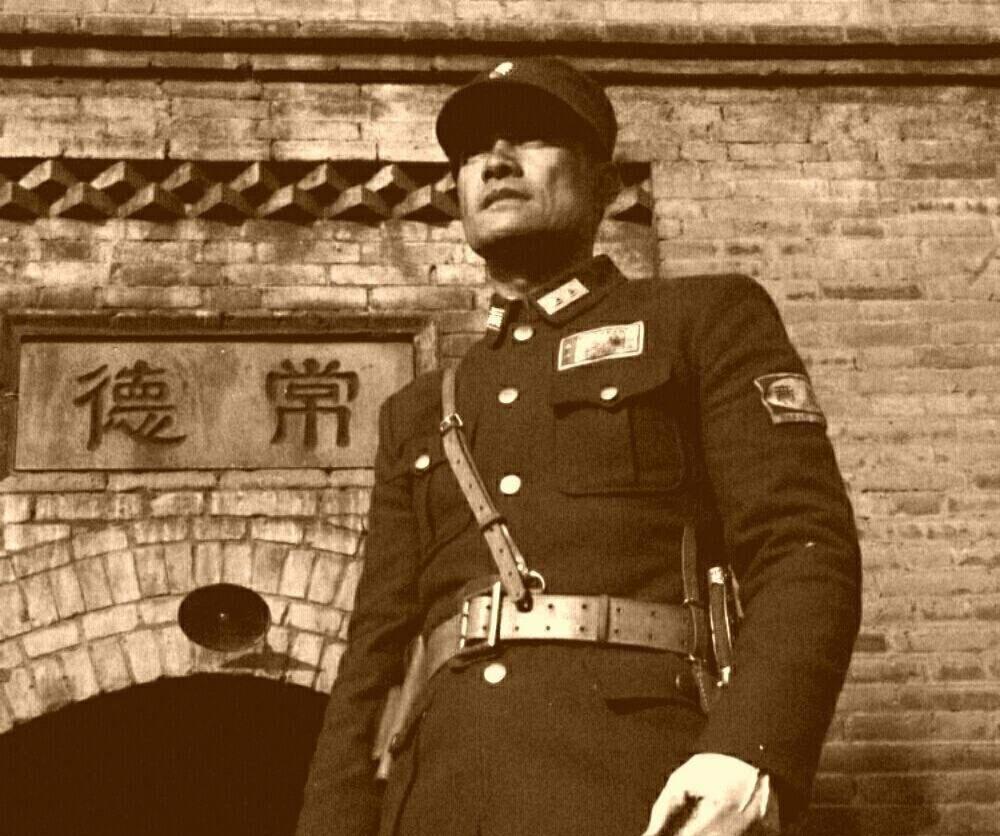This person became famous in a war, but almost caused the disaster of killing himself, and finally died inexplicably
The Battle of Changde was a battle that broke out in Changde between November and December 1943, when the Invading Japanese Army invaded China to contain the Nationalist counterattack on Yunnan.
At that time, the Japanese army besieged the city of Changde garrisoned by the 57th Division of the 74th Army for 16 days and nights with more than 50,000 people in 3 divisions and regiments, and finally occupied Changde for only 8 days, and was retaken from the periphery by the troops commanded by Wang Yaowu. This battle was of great significance, and was known as the "Defense of Stalingrad in China".
More importantly, in this war, a famous general was born, he was Yu Chengwan, the commander of the 57th Division of the 74th Army.

Yu Chengwan, a native of Guangdong, a first-term student of Huangpu, a military genius, was awarded the major general at the age of 25, graduated from the Department of Political Science of Sun Yat-sen University, and later entered the Research Department of the Army University for further study. In the 74th Army, it was older than the two commanders Yu Jishi and Wang Yaowu. The 57th Division under his command was awarded the honorable title of "Tiger Ben" Division.
As early as may 1943, during the Battle of Western Hubei, the 57th Division was stationed in Changde.
At that time, the Japanese army had captured Huarong, Shishou and other places, and gathered heavy troops in northern Hunan province, with a great potential to move south. As a result, Changde City fell into panic, and the residents fled.
After the 57th Division entered the city, military discipline was strict, and Qiu did not commit any crimes. They cleaned up the streets, buildings, and shops in an orderly and clean manner. The troops are not allowed to trespass into people's homes or use any of the people's belongings.
After the End of the Battle of Western Hubei, the 57th Division immediately drove out of the city and moved to defend Hezhu Mountain on the outskirts of the city.
At that time, the 57th Division, which had strict military discipline, greatly surprised the citizens of Changde, and they praised the 57th Division as the "master of kings" and the patron saint of Changde.
At present, the "Tiger Ben" troops once again marching into Changdecheng will inevitably be more warmly welcomed by the residents of the whole city.
At the Battle of Changde, the 57th Division of the 74th Army, with a strength of more than 8,300 troops, fought alone and held the isolated city. The 50,000 Japanese troops, who had absolute superiority in firepower and strength, fought hard for 16 days and nights, and in the end only 321 men were left in the whole division.
They withstood the Japanese air force bombing, artillery attacks, poison gas shells and the threat of burning the whole city, killing more than 10,000 Japanese 109th Wing Commander Fukami Kazusa and 6Tha Squadron Commander Zhongyan Aidaisa, creating a major miracle in the history of the War of Resistance.
From the Japanese occupation of Changde on December 3, only three days before and after, the Chinese army began to counterattack from the outside line; on December 11, Yu Chengwan led more than 80 people of the 57th Division to guide Lu Daoyuan's 58th Army to retake Changde City. The Japanese army retreated in a hurry, and the 58th Army, 72nd Army, and 44th Army followed in pursuit, driving the Japanese to Li County, a hundred miles away, and confronting each other across the river.
However, after the Battle of Changde, Yu Chengwan not only did not receive flowers and honors, but almost invited the disaster of killing himself.
It turned out that this was caused by Chiang Kai-shek's divisive scheme of the Japanese.
Before the cairo conference of Roosevelt, Churchill, and Stalin, the Japanese deliberately published several fake photos of Chinese soldiers holding white flags and surrendering in the newspapers, which greatly humiliated Chiang Kai-shek at the meeting.
Enraged, Chiang Kai-shek ordered Yu Chengwan's arrest and prepared to shoot him. Fortunately, Yu Jishi, Wang Yaowu and a large number of Huangpu brothers and disciples tried their best to defend and intercede for Yu Chengwan, and he was spared death.
After the truth came out, Yu Chengwan was released in 1945 and restored to his military position and rank, and was reused again.
In 1950, Cheng Wan went to Taiwan and later settled in Hong Kong.
On August 27, 1955, General Yu's young and beautiful wife was kidnapped by the underworld, Yu single-handedly rescued, his family called the police, was killed in a gunfight between the police and robbers, and some people reported that they may have been killed by Taipei agents, a generation of famous anti-Japanese generals, who died in an unknown and undeplorable way!